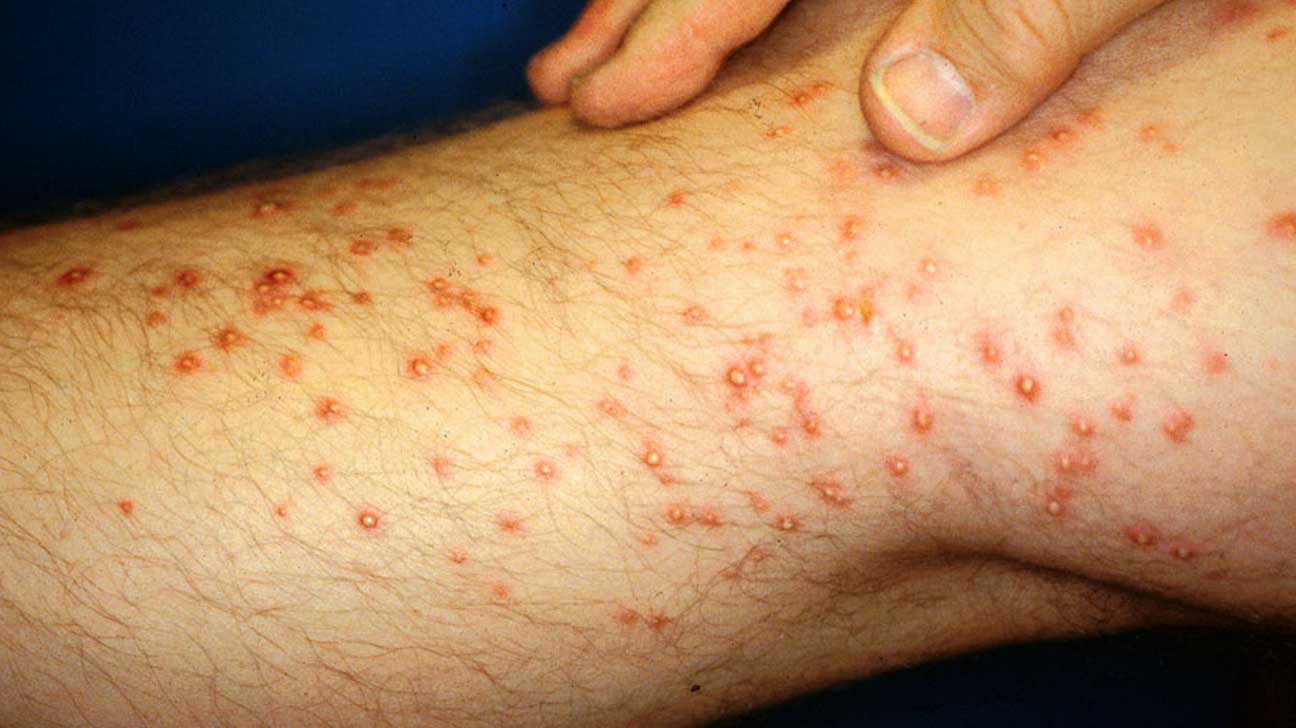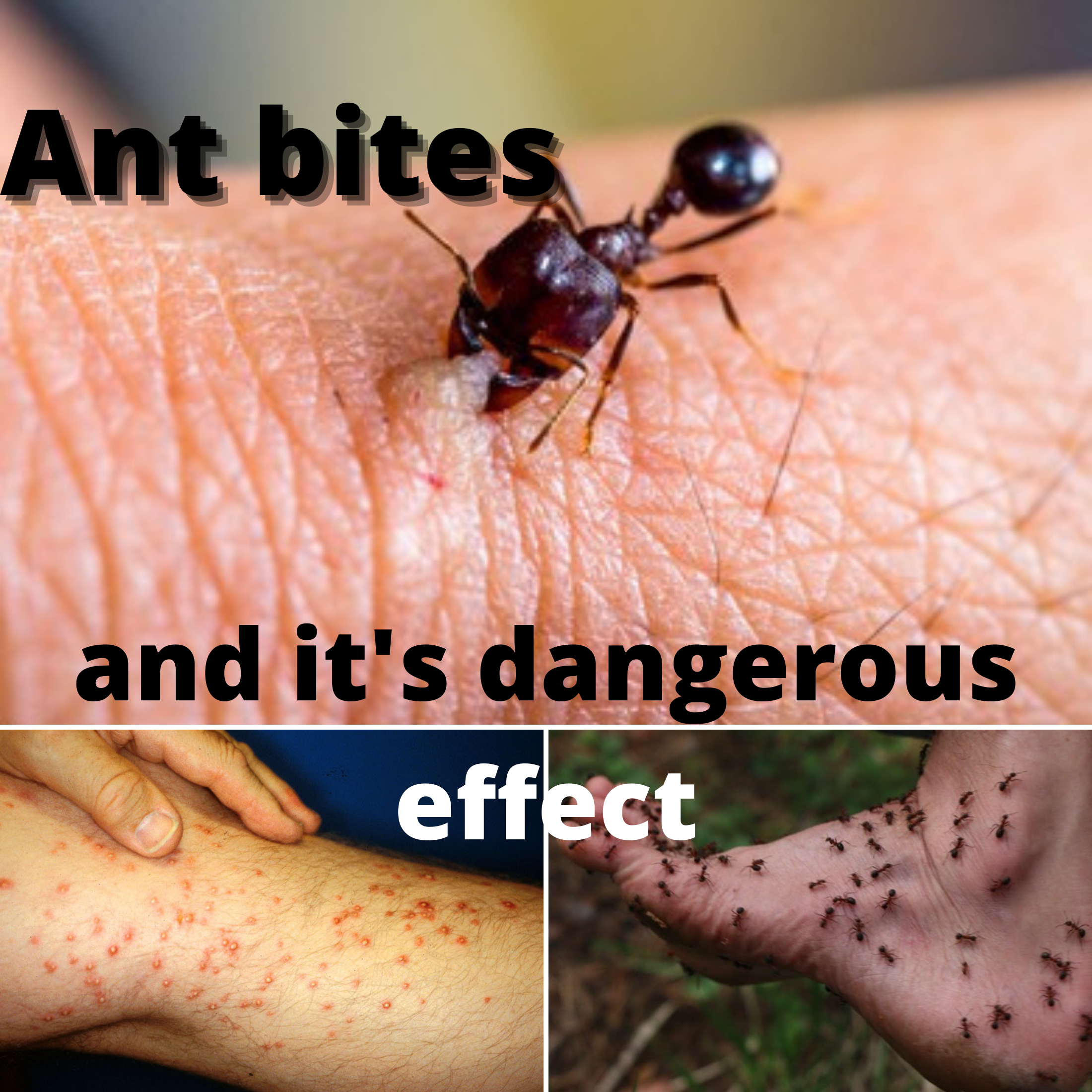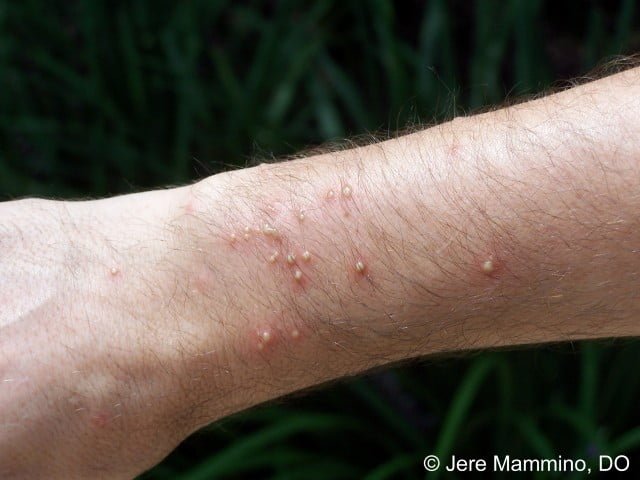If a fire ant bites you, it delivers venom into your skin, causing intense pain, itching, and potential allergic reactions. Fire ant’s venom is harmful, leading to symptoms like anaphylaxis, and it is important to seek emergency treatment if necessary.
Avoiding fire ant mounds and wearing protective clothing can help prevent bites. Applying antihistamines and over-the-counter steroid creams can provide relief for symptoms such as itching and inflammation. It’s also advisable to take oral antihistamines or apply topical steroid ointments for relief from itching that can last for hours after a fire ant bite.
If bitten by a fire ant, these measures can help alleviate the discomfort and promote healing.

Credit: www.healthline.com
Understanding Fire Ant Bites
Fire Ant Venom And Its Effects
Fire ants are red-colored insects that inject venom into your skin when they sting. The venom is a harmful substance that causes intense pain and itching. It can lead to allergies in some people, requiring emergency treatment due to symptoms of anaphylaxis developing in just a few minutes.
Symptoms Of Fire Ant Bites
When a fire ant bites, it grabs your skin with its pinchers and releases a chemical called formic acid into your skin. This causes a burning sensation and itchy welts, often forming a circular pattern of sting sites. Some people may experience allergic reactions to the venom, leading to severe pain and inflammation at the sting site.

Credit: www.healthline.com
Treatment And First Aid
If you ever find yourself unfortunate enough to get bitten by a fire ant, it’s important to know how to properly treat the bite and provide first aid. Fire ant bites can be painful and lead to severe reactions in some cases. Here, we will discuss the different treatment options and first aid measures you can take to alleviate the symptoms and prevent any complications.
Home Remedies For Fire Ant Bites
If you’re looking for natural ways to relieve the discomfort caused by fire ant bites, here are some home remedies you can try:
- Apply a cold compress or ice pack to reduce swelling and numb the area.
- Clean the affected area with mild soap and water to prevent infection.
- Apply a paste made of baking soda and water to the bite to reduce itching.
- Use over-the-counter antihistamine creams or take oral antihistamines to relieve itching and inflammation.
- Elevate the affected limb to reduce swelling.
Remember, these are just home remedies and may not work for everyone. If your symptoms worsen or if you experience severe reactions, it’s best to seek medical treatment.
Medical Treatment For Severe Reactions
In some cases, fire ant bites can cause severe allergic reactions that require immediate medical attention. If you experience any of the following symptoms, make sure to seek medical help:
- Difficulty breathing or tightness in the chest
- Swelling of the face, lips, tongue, or throat
- Faintness or dizziness
- Rapid heartbeat
- Hives or widespread rash
In such situations, medical professionals may administer epinephrine injections to counteract the allergic reaction. They may also prescribe oral antihistamines or corticosteroids to reduce inflammation and alleviate symptoms.
It’s important to remember that fire ant bites can vary in severity from person to person. While most bites can be treated at home with simple remedies, severe reactions require immediate medical attention. Always monitor your symptoms and seek proper medical help if needed.
Prevention And Protection
Experience an intense pain if a fire ant bites you. Fire ant venom can cause itching and swelling. Immediate treatment with antihistamines and cold compresses can alleviate symptoms.
Avoiding Fire Ant Mounds
To prevent fire ant bites, it is crucial to avoid fire ant mounds at all costs. These mounds are the nests where fire ants build their colonies, so staying away from them significantly reduces the risk of getting bitten. Here are a few tips to keep in mind:
- Avoid stepping on or disturbing fire ant mounds
- Be cautious when walking in areas where fire ants are known to be present, such as gardens, parks, and fields
- Keep an eye out for signs of fire ant mounds, such as small, sandy mounds protruding from the ground
- If you spot a fire ant mound, take a detour and keep a safe distance from it
Protective Measures Against Fire Ant Bites
While avoiding fire ant mounds is the best way to prevent bites, sometimes it may be unavoidable to encounter these aggressive insects. In such cases, taking protective measures can help minimize the chances of getting bitten. Here are a few ways to protect yourself:
- Wear long sleeves, long pants, and closed-toe shoes when spending time outdoors, especially in areas prone to fire ants
- Tuck your pants into your socks and your shirt into your pants to create a barrier against the ants
- Apply insect repellent containing DEET on exposed skin and clothing
- Avoid wearing bright-colored clothing and excessive fragrance, as these can attract fire ants
- If you come across a fire ant on your body, gently brush it off instead of swatting or squashing it, as this can provoke more bites
By following these prevention and protection methods, you can reduce the risk of fire ant bites and enjoy your time outdoors without worries. Remember, being aware of your surroundings and taking precautions is key to staying safe from these relentless insects.

Credit: paidepo.com
Uncommon Reactions To Fire Ant Bites
While many people experience typical symptoms such as pain, itching, and redness after being bitten by fire ants, some individuals may encounter uncommon reactions that require special attention and care. Understanding these rare responses can help you recognize potential complications and seek appropriate medical treatment if needed.
Subheading: Fire Ant Bites in Sensitive AreasFire Ant Bites In Sensitive Areas
Fire ant bites in sensitive areas, such as the eyes, throat, or genitals, can lead to more severe symptoms due to the thin and delicate nature of the skin in these regions. In the case of eye bites, a condition known as “Fire Ant” Eye can occur, causing cloudiness in the cornea and potentially resulting in partial to total blindness.
Subheading: Allergic Reactions and AnaphylaxisAllergic Reactions And Anaphylaxis
Some individuals may experience allergic reactions to fire ant venom, leading to symptoms such as widespread hives, swelling of the face, throat constriction, difficulty breathing, and a drop in blood pressure. In rare cases, severe allergic reactions can progress to anaphylaxis, a life-threatening emergency that requires immediate medical intervention.
Frequently Asked Questions For What If A Fire Ant Bites You
Do Fire Ant Bites Have Poison?
Yes, fire ant bites have poison. The sting injects venom into the skin, causing harm.
Can Fire Ant Bites Make You Feel Bad?
Yes, fire ant bites can make you feel bad. The sting produces intense pain and itching. Some people may have allergies to fire ant venom, leading to emergency treatment. A single sting can produce symptoms of anaphylaxis in just a few minutes.
Do Fire Ants Leave A Stinger In You?
Fire ants do leave a stinger in you. After the first sting, they may remove the stinger and sting several more times, leaving a circular pattern of sting sites.
What Happens If A Fire Ant Bites Your Eye?
If a fire ant bites your eye, it can cause a type of keratopathy called “Fire Ant Eye. ” This can result in cloudiness in the cornea, leading to partial or total blindness. There may not be any pain or inflammation initially, but white spots can appear and spread across the cornea.
Seek immediate medical attention.
Conclusion
A fire ant bite can be painful and cause itching. Some people may even have allergic reactions requiring emergency treatment. It’s important to avoid fire ant mounds and treat the bites with antihistamines and cold compresses. Understanding the symptoms and treatments can help mitigate the effects of a fire ant bite.

I’m MD Tanvir, and I bring years of expertise gained from working closely with pest control companies to the forefront. My journey in the industry has inspired me to launch Bug Battler, a platform aimed at equipping people with the know-how to combat pests autonomously. Through Bug Battler, I aim to empower individuals with practical insights to tackle pest infestations effectively.

